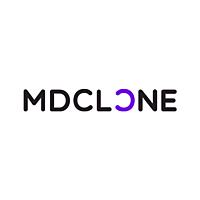Description

DATPROF Privacy

Syntho
Comprehensive Overview: DATPROF Privacy vs Syntho
DATPROF Privacy and Syntho Privacy are both solutions designed to address data privacy concerns, particularly in the context of data protection and compliance with regulatory standards like GDPR. Here's a detailed overview of each:
DATPROF Privacy
a) Primary Functions and Target Markets
- Primary Functions:
- Data Masking: DATPROF Privacy primarily focuses on pseudonymizing or anonymizing sensitive data within non-production databases, allowing businesses to develop, test, and analyze data without exposing actual sensitive information.
- Data Subsetting: It provides tools for creating smaller, more manageable sets of representative data from larger databases, which are still useful for non-production purposes.
- Test Data Management: The platform is designed to manage and streamline the provisioning of test data across various environments, ensuring compliance without compromising on data utility.
- Target Markets:
- Primarily aimed at industries such as finance, healthcare, and telecommunications, which handle large volumes of personal and sensitive data.
- IT departments, developers, and data analysts who require access to realistic data for testing, analysis, and development purposes.
b) Market Share and User Base
- DATPROF is a well-established player in the European market, holding a significant share, particularly in sectors highly concerned with data security and regulation.
- The user base consists mainly of mid-sized to large enterprises focused on compliance and data security.
c) Key Differentiating Factors
- User-Friendly Interface: Offers a graphical interface that simplifies the process of data masking and management.
- Integration Capabilities: Easily integrates with a wide range of databases and development environments.
- Focus on Non-Production Environments: Specifically targets the need for secure and compliant test data management, which is a critical requirement for many enterprises.
Syntho Privacy
a) Primary Functions and Target Markets
- Primary Functions:
- Synthetic Data Generation: Syntho is renowned for generating synthetic data that retains the statistical properties of real data without compromising privacy. This is critical for performing analytics and machine learning tasks.
- Data Anonymization: Enables companies to anonymize data in a way that is indistinguishable from the real dataset from a statistical standpoint, protecting individual identities.
- Target Markets:
- Aimed at sectors like pharmaceuticals, automotive, and AI research, where data needs to be both utilitarian and free of privacy constraints.
- Data scientists, researchers, and analysts who require high-quality data for model training without accessing real personal data.
b) Market Share and User Base
- Syntho is a growing company, with a notable presence mainly in industries that are innovation-driven and require robust data analysis capabilities.
- Its user base includes a mix of enterprises and research institutions focusing on data-driven insights.
c) Key Differentiating Factors
- Synthetic Data Expertise: Unlike traditional anonymization techniques, Syntho's synthetic data closely mirrors the properties of the original data set, making it highly suitable for advanced analysis and AI/ML applications.
- Advanced Privacy Assurance: The use of synthetic data ensures zero risk of re-identification, a crucial factor for companies handling sensitive information.
- Innovation Focus: Known for its cutting-edge technology in data privacy, making it attractive for forward-thinking companies.
Comparative Analysis
- Market Position: DATPROF is more established in traditional industries with a strong emphasis on compliance and data security for non-production environments. Syntho is carving a niche in sectors requiring synthetic data for innovation.
- Use Cases: DATPROF is more aligned with internal operational needs like testing and development. Syntho excels in environments where data needs to drive value without privacy trade-offs, such as in AI and research.
- Technological Approach: DATPROF's strength lies in its data masking and integration capabilities, making it versatile for enterprise IT environments. Syntho's innovation with synthetic data offers a unique approach to privacy without losing analytical potential.
Both solutions address data privacy, but they cater to slightly different needs and sectors, making them complementary rather than directly competitive.
Contact Info

Year founded :
Not Available
Not Available
Not Available
Not Available
Not Available

Year founded :
Not Available
Not Available
Not Available
United Kingdom
Not Available
Feature Similarity Breakdown: DATPROF Privacy, Syntho
When comparing DATPROF Privacy and Syntho, two prominent data anonymization and synthetic data generation tools, it's essential to understand their core functionalities, user interfaces, and unique features. Here's a breakdown:
a) Core Features in Common
-
Data Anonymization: Both products offer robust data masking capabilities to protect sensitive information. They adhere to data privacy regulations by transforming real data into anonymized datasets.
-
Synthetic Data Generation: DATPROF Privacy and Syntho provide tools for generating synthetic data that retains the statistical properties of original datasets, allowing safe usage in non-production environments.
-
Compliance with Regulations: Both tools help organizations comply with data protection regulations like GDPR, HIPAA, and CCPA, ensuring that sensitive data is adequately protected.
-
Scalability: They offer scalable solutions to handle large datasets, which is essential for enterprise-level applications.
-
Integration Capabilities: These products integrate with various databases and systems, allowing easy deployment and data access across different technological environments.
b) User Interface Comparison
-
DATPROF Privacy:
- Offers a user-friendly interface with graphical representations of data flow and transformation processes.
- Includes drag-and-drop functionalities for building data anonymization workflows.
- Emphasizes ease of setup and configuration through intuitive navigation and clear documentation.
-
Syntho:
- Presents a modern and clean interface, often praised for its simplicity and ease of use.
- Focuses on straightforward data configuration and generation processes, making it accessible even to those with limited technical expertise.
- Provides a dashboard with visual analytics to monitor data generation and transformation progress.
c) Unique Features
-
DATPROF Privacy:
- Advanced Data Masking Techniques: Offers a wide range of masking techniques to cater to different data types and requirements, ensuring complete data protection.
- Built-in Templates and Connectors: Comes with pre-configured templates and connectors for various systems, facilitating quick setup and implementation.
-
Syntho:
- AI-Driven Synthetic Data Generation: Leverages advanced AI algorithms to generate highly realistic synthetic data that mimic complex relationships in the original data.
- Real-Time Data Simulation: Syntho can provide real-time data simulation capabilities, which is particularly useful for training machine learning models on-the-fly or testing live systems.
- Focus on Synthetic Data Quality: Syntho emphasizes maintaining high fidelity in the synthetic data for it to be indistinguishable from real data in analytical use cases.
Conclusion
While both DATPROF Privacy and Syntho share several core features aimed at data privacy and protection, their unique selling points cater to slightly different usage scenarios. DATPROF excels in providing comprehensive data masking solutions with ease of integration, whereas Syntho stands out with its AI-driven synthetic data generation capabilities and focus on real-time data processes. The choice between the two will ultimately depend on specific organizational needs, such as the emphasis on synthetic data quality versus extensive anonymization options.
Features

Not Available

Not Available
Best Fit Use Cases: DATPROF Privacy, Syntho
When considering data privacy and synthetic data generation tools, both DATPROF Privacy and Syntho offer unique capabilities that make them suitable for different use cases and business types. Here's a breakdown of their best-fit use cases:
DATPROF Privacy
a) Best for Which Types of Businesses or Projects?
- Enterprises with Complex Data Environments: DATPROF Privacy is particularly suited for larger organizations that manage complex and large-scale data environments, such as those in financial services, healthcare, and telecommunications.
- Businesses Needing Data Masking Solutions: Companies that require robust data masking solutions to comply with regulations like GDPR, CCPA, or HIPAA find DATPROF Privacy beneficial, as it specializes in data anonymization and pseudonymization.
- Projects Involving Data Sharing Across Departments or with Third-Parties: Projects that need to securely share data within or outside the organization without exposing sensitive information can leverage DATPROF's functionalities.
d) Industry Verticals and Company Sizes
- Healthcare, Finance, and Government: These sectors often deal with sensitive personal data and require stringent data protection measures.
- Large and Medium-sized Enterprises: DATPROF is designed to support enterprise-level data management needs, making it ideal for medium to large-scale businesses.
Syntho
b) Preferred Use Cases
- Startups and Firms Focused on Innovation: Companies looking to create innovation-driven products and services, or those experimenting with data without legal or ethical constraints, benefit from using synthetic data.
- Training AI and Machine Learning Models: Syntho is particularly valuable in scenarios that require vast datasets for training ML models, where real data might be scarce or too sensitive.
- Data Augmentation and Enhancement Projects: Businesses aiming to enhance their existing datasets with synthetic data for improved analytics and decision-making are ideal candidates for Syntho's offerings.
d) Industry Verticals and Company Sizes
- Technology and Research Institutions: These industries often need large volumes of varied datasets to innovate and train AI systems effectively.
- SMBs to Large Enterprises: From small to very large businesses, those engaged in AI/ML projects or those seeking to augment their data capabilities with synthetic data may find Syntho appropriate.
In conclusion, DATPROF Privacy is a prime choice for organizations focused on data protection and regulatory compliance, particularly within sensitive data environments. Syntho's synthetic data solutions, on the other hand, cater to innovative projects and industries exploring the frontiers of AI and data science, regardless of company size. Both tools serve distinct but sometimes overlapping needs, depending on project requirements and industry demands.
Pricing

Pricing Not Available

Pricing Not Available
Metrics History
Metrics History
Comparing undefined across companies
Conclusion & Final Verdict: DATPROF Privacy vs Syntho
To provide a conclusion and final verdict for DATPROF Privacy and Syntho, it’s essential to assess both products based on their features, performance, cost, ease of use, and customer support. Here’s a detailed analysis:
a) Best Overall Value
Conclusion:
DATPROF Privacy generally offers robust data masking and data privacy solutions that are well-suited for organizations that require comprehensive data protection capabilities. It’s especially valuable for businesses operating in highly regulated industries due to its compliance features.
Syntho, on the other hand, excels in synthetic data generation, providing organizations with the ability to create realistic but entirely artificial datasets for testing, machine learning, and analytics without privacy concerns. This is beneficial for organizations prioritizing innovation and development without risking real personal data exposure.
Verdict: For organizations primarily focused on data privacy and compliance, DATPROF Privacy might offer the best overall value. However, for those that need innovative data solutions with a focus on synthetic data for development purposes, Syntho could be the best choice.
b) Pros and Cons
DATPROF Privacy Pros:
- Comprehensive data masking capabilities tailored for compliance.
- User-friendly interfaces and integrated workflows for seamless operations.
- Strong support for various database platforms.
DATPROF Privacy Cons:
- May require significant initial configuration.
- Might be perceived as costly for smaller organizations with tighter budgets.
Syntho Pros:
- Excellent synthetic data generation that supports innovation.
- Helps preserve data utility while ensuring privacy.
- Often more flexible in terms of deployment and integration with existing systems.
Syntho Cons:
- Might not cover some advanced data masking features required for certain compliance mandates.
- The concept of synthetic data might require a shift in mindset and possible additional training for teams used to traditional data management.
c) Recommendations
For users deciding between DATPROF Privacy and Syntho:
-
Assess Needs: Clearly determine the primary need for your organization—whether it’s compliance and data masking (lean towards DATPROF Privacy) or synthetic data innovation (lean towards Syntho).
-
Consider Existing Infrastructure: Evaluate your current IT environment and integration needs. If seamless integration with legacy systems is crucial, DATPROF might have an edge with its comprehensive platform support.
-
Budget Considerations: Understand your budget constraints and potential ROI. Syntho might be more cost-effective for organizations primarily looking to leverage synthetic data for testing.
-
Scalability and Future Needs: Consider future-proofing your data management strategy. If expanding into more advanced machine learning projects and analytics is on your horizon, Syntho may offer the flexibility needed.
In summary, both DATPROF Privacy and Syntho have unique advantages, and the best choice will largely depend on the specific requirements and strategic goals of the organization. A thorough internal review combined with demos from both companies can aid in making an informed decision.
Add to compare
Add similar companies




